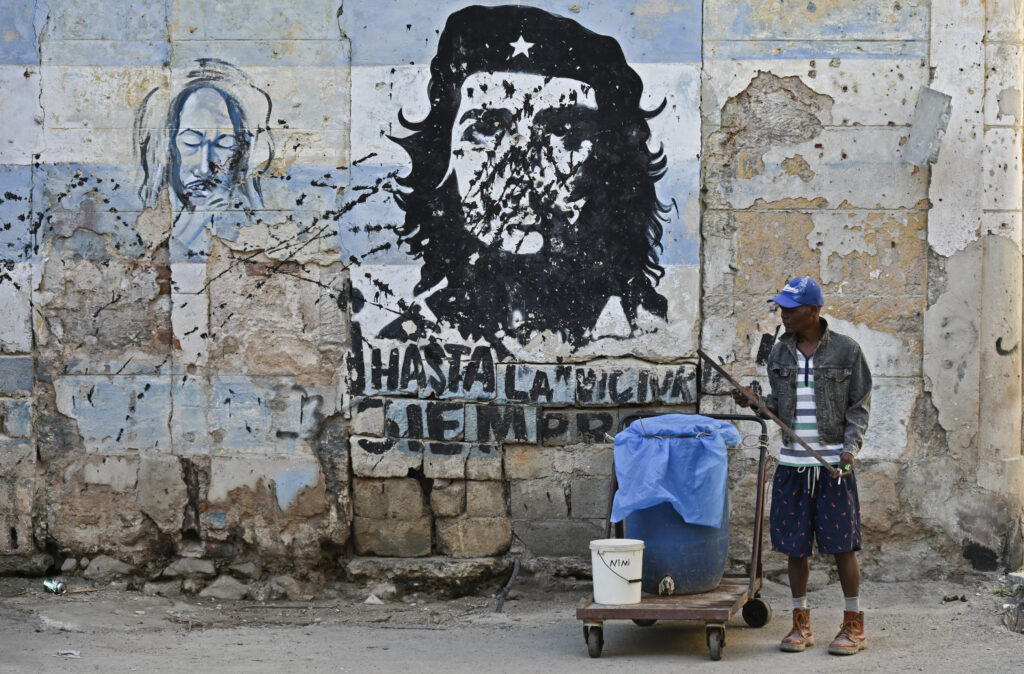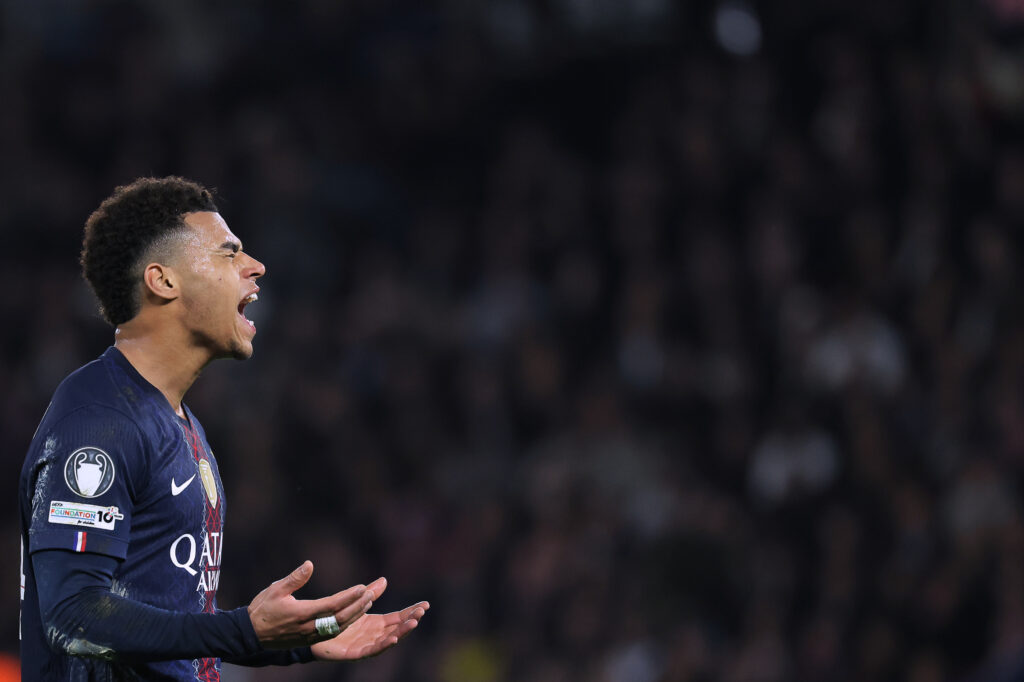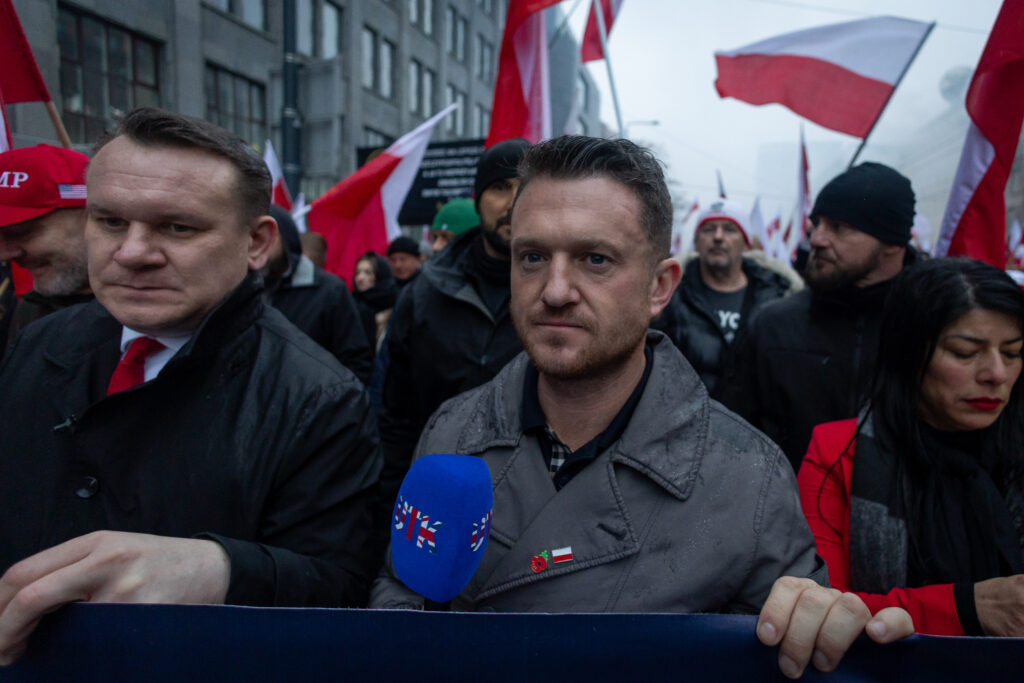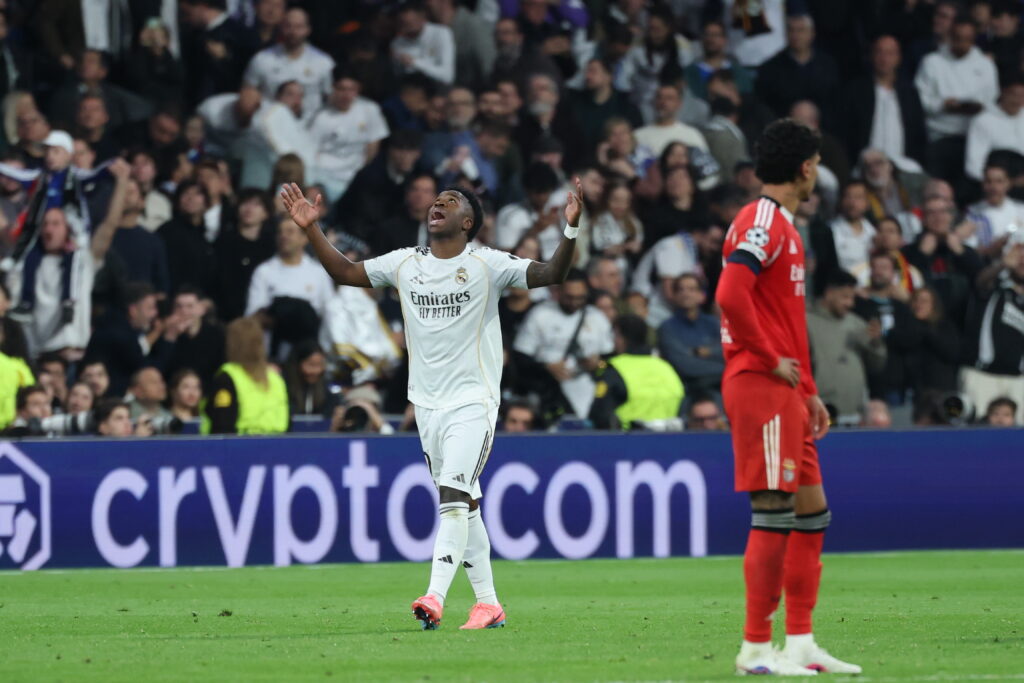Ligue des champions: proche de l’exploit, la Juventus douchée en prolongations
Battue 5 à 2 au match aller à Galatasaray, la Juventus Turin n’est pas passée loin de l’exploit au retour: mais deux buts des Turcs en prolongations ont éliminé les Turinois dès les barrages de la Ligue des champions.Vainqueurs 3 à 0 à l’issue du temps réglementaire, les Bianconeri ont arraché une prolongation inespérée, alors qu’ils évoluaient à dix depuis l’exclusion de Lloyd Kelly à la 47e minute. Mais Victor Osimhen (105+1e) et Baris Yilmaz (119e) ont finalement douché les espoirs de qualification de la Juve et envoyé le club turc en huitième de finale, malgré une victoire 3-2 après prolongations des Italiens.Comme la saison dernière face au PSV Eindhoven, le finaliste de l’édition 2017 est éliminé dès les barrages d’accession aux huitièmes.Pourtant les joueurs de Luciano Spalletti n’ont pas manqué d’envie. Mais comme au match aller, la Juventus a sérieusement compliqué ses chances en évoluant de longues minutes en infériorité numérique.Après l’exclusion du défenseur colombien Juan Cabal à Istanbul, qui avait fait sombrer les Italiens dans le dernier quart d’heure, c’est l’Anglais Kelly qui a quitté ses partenaires mercredi soir, exclu directement pour une semelle sur la cheville de Yilmaz.Mais à l’inverse de la semaine dernière, la Juventus n’a pas perdu le fil, portée par une envie débordante de créer l’exploit. – La Juventus craque -A 11 contre 11 déjà, la Juventus s’est créé les occasions les plus franches. Le portier turc Ugurcan Çakir a un temps repoussé l’échéance, s’interposant brillamment sur une frappe des 35 mètres de Manuel Locatelli (21e) et une tentative de Kenan Yildiz (30e).Mais quelques minutes plus tard, Lucas Torreira a commis une faute sur Khephren Thuram dans sa surface de réparation et le gardien de Galatasaray n’a rien pu faire sur le penalty transformé par Locatelli (1-0, 37e).En infériorité numérique, la Juventus n’a pas relâché l’étreinte. Après des tentatives infructueuses de ses ailiers Yildiz (55e) et Francisco Conceiçao (66e), c’est son défenseur Federico Gatti qui l’a ramené à un but de la prolongation, reprenant devant le but vide un centre de Pierre Kalulu (2-0, 70e).En face, les Stambouliotes auraient pu se donner un peu d’air, mais Victor Osimhen a vu sa frappe enroulée du droit passer juste au dessus de la barre de Mattia Perin (73e).Portés par les entrées de Jeremie Boga et Edon Zhegrova, les Turinois ont continué de pousser, inlassablement. Après un centre de Boga repoussé par le poteau de Çakir (79e), le latéral gauche Weston Mckennie a fait chavirer le stade en reprenant de la tête une déviation de Teun Koopmeiners (3-0, 82e).Longtemps trop passif dans cette rencontre, Galatasaray a retrouvé de l’allant en prolongations et a logiquement fait craquer la Juventus. Osimhen a profité d’une intervention manquée de Gatti pour ajuster Perin avant que Yilmaz n’entérine définitivement la qualification des siens en huitièmes de finale de Ligue des champions: une première depuis 2014.
Cuba coast guard kills 4 on Florida-registered speedboat
Cuba’s coast guard said Wednesday it shot dead four people and wounded six others traveling in a US-registered speedboat during an exchange of fire near Cuba’s shores that came amid heightened tensions with Washington.Havana did not reveal the nationalities of the passengers aboard the Florida-registered boat nor why it was approaching the communist-run island, which is under strict US sanctions.US Vice President JD Vance said the White House was “monitoring” the situation and that “hopefully it’s not as bad as we fear it could be.”Vance added that he had been briefed by Secretary of State Marco Rubio, who is attending a summit of the Caribbean Community but “we don’t know a whole lot of details.”The attorney general of Florida, which lies just 100 miles (160 kilometers) from Cuba across the Florida Straits, said he had ordered an investigation into the killings.The Cuban interior ministry said the coast guard encountered the “illegal” US vessel, registration number FL7726SH, one nautical mile from Cayo Falcones island off Cuba’s north coast.As the coast guard vessel approached, “shots were fired from the illegal speedboat,” injuring the commander of the Cuban vessel, the ministry said.”As a result of the clash, at the time of this report, on the foreign side, four aggressors were killed and six others were wounded,” the ministry said, adding that the injured were evacuated and received medical assistance.It did not give the exact origin of the boat.The Cuban government frequently reports incursions by speedboats from the United States into its territorial waters.The interior ministry said it was still investigating the incident and remained committed to protecting Cuban waters.- People smuggling -Incursion incidents are often related to people smuggling to the United States or drug trafficking, and have included chases, shootouts and armed attacks on border guards.Shortages of food and medicine and daily blackouts drove an exodus from the island in recent years, with many heading to southern Florida, which has received waves of Cuban migration since the 1960s. Wednesday’s shootings came as Washington softened a virtual oil siege of the island imposed by President Donald Trump in January after the US ouster of top Cuba ally, Nicolas Maduro of Venezuela.Before Maduro’s ouster by US forces on January 3, Cuba had relied on Venezuela, once a major oil producer, for about half its fuel needs.Faced with an outcry from Caribbean leaders, worried that starving 9.6 million Cubans of oil would cause the economy to collapse, Washington said it would allow shipments of Venezuelan oil for “commercial and humanitarian use.”The announcement came during a summit of Caribbean nations attended by US Secretary of State Rubio, a Cuban-American who has spent his career hoping to topple Havana’s government.The Treasury Department said the Venezuelan oil would need to go through private businesses and not the Cuban government or the military apparatus that controls much of the island’s economy.The US oil blockade in place for over a month has brought an already crumbling Cuban economy, which has been under a US trade embargo since shortly after Fidel Castro’s 1959 revolution, to the brink.Mexico on Tuesday dispatched two military vessels carrying nearly 2,200 tons of aid to the island — its second aid shipment in under a month.Canada also announced Can$8 million ($5.8 million) in aid on Wednesday.
Ligue des champions: le Paris SG et le Real en 8es sans briller, la Juve frôle le miracle
Tenant du titre, le Paris SG s’est qualifié sans briller pour les 8es de finale de la Ligue des champions avec un nul contre Monaco mercredi soir en barrage retour (2-2), tout comme le Real vainqueur de Benfica 2-1, tandis que la Juventus a frôlé le miracle contre Galatasaray (3-2).Avec son latéral droit Achraf Hakimi, bien titulaire au lendemain de l’annonce de son renvoi en procès pour viol, le PSG s’est fait peur face à Monaco, comme au match aller où les Parisiens avaient été menés 2-0 avant de s’imposer 3-2.Bousculés et menés 1-0 après un but de Maghnès Akliouche (45e), les Parisiens ont profité de quelques minutes cauchemardesques pour les hommes de Sébastien Pocognoli: un rouge pour Mamadou Coulibaly (59e), suivi d’un but du capitaine parisien Marquinhos (60e).Le Géorgien Khvicha Kvaratskhelia a ensuite donné un peu d’air à Paris, malgré une dernière frayeur avec la réduction tardive du score de Teze (90e+1): les joueurs de Luis Enrique ont décroché leur billet pour les 8es, face à Chelsea ou Barcelone.Le Real Madrid a lui aussi pris le chemin des 8es en dominant difficilement Benfica (2-1), dans un contexte brûlant une semaine après que Vinicius Jr eut dénoncé des insultes racistes de la part de l’Argentin Gianluca Prestianni au match aller (1-0 pour le Real).Le match s’est disputé sans Prestianni, suspendu provisoirement par l’UEFA, ni Kylian Mbappé: la star française, qui avait soutenu publiquement Vinicius, a dû déclarer forfait, touchée au genou gauche.Surpris par un but de Rafael Silva (14e), les Madrilènes ont égalisé grâce à Aurélien Tchouaméni (16e, 1-1). Déjà auteur du seul but à l’aller, Vinicius, d’une superbe frappe, s’est lui-même chargé de sceller la victoire (79e) pour sécuriser le 8e, face à Manchester City ou le Sporting Portugal.Balayée 5-2 lors du match aller, la Juventus Turin a elle frôlé l’exploit contre Galatasaray, finalement éliminée après deux buts encaissés lors des prolongations (3-2).Réduits à 10 après l’expulsion de Lloyd Kelly (50e), les Turinois ont enflammé la rencontre, Gatti (70e, 2-0) et McKennie (82e, 3-0) marquant les buts de l’espoir après le penalty de Locatelli (37e).Mais les Turcs ont finalement réagi en prolongations, Victor Osimhen (105e+1) puis Baris Yilmaz (119e) trompant le portier turinois Mattia Perin.Comme l’an passé, la Juve s’arrête en barrages, alors que Galatasaray, qui retrouve les 8es de finale pour la première fois depuis 2014, affrontera Tottenham ou Liverpool.Mal embarquée après sa défaite 2-0 à Dortmund la semaine dernière, l’Atalanta Bergame a elle renversé les pronostics, faisant plier 4-1 le Borussia grâce à un penalty en toute fin de match, alors que Karim Adeyemi (75e, 3-1) avait obtenu les prolongations pour le Borussia. Seuls représentants de l’Italie en 8e, les joueurs de Raffaele Palladino se heurteront à une montagne: Arsenal ou le Bayern.
UK far-right activist Tommy Robinson visits US State Department
British far-right activist Tommy Robinson announced he had visited the US State Department on Wednesday, as the Trump administration ramps up its criticism of European allies over speech restrictions and has sided with far-right parties across the continent.”In America making alliances & friendships, today I had the privilege of an invite to the @StateDept,” Robinson wrote on X, with a photo apparently taken from a balcony of the State Department headquarters in Washington.US official Joe Rittenhouse added in a post on X he was “honored to have” Robinson at the State Department, calling the British activist a “free speech warrior.””The World and the West is a better place when we fight for freedom of speech and no one has been on the front lines more than Tommy,” wrote Rittenhouse, an advisor in the State Department’s consular affairs office.Robinson, whose real name is Stephen Yaxley-Lennon, boasts a significant online following and is a highly contentious figure in Britain, spearheading a fervent anti-Muslim and anti-migrant agenda.The 43-year-old former football hooligan increasingly fuses those themes with claims that Britain is now hostile to free speech.In September, the self-described journalist drew around 150,000 people onto London’s streets for one of the country’s largest far-right protests ever.He has faced a string of criminal convictions, including for mortgage fraud, public order and contempt of court, dating back decades.Robinson was jailed in the UK in 2013 for using someone else’s passport to enter the United States, which had refused him entry because of drug offences.Illegal immigration has been a key issue for US President Donald Trump, under whom authorities have carried out a wide-ranging deportation drive that advocacy groups say has often violated people’s rights.Robinson has also been blamed for helping to fuel anti-migrant riots that rocked the United Kingdom in 2024, something he denies.The State Department declined to comment when asked by AFP about Robinson’s visit.
Ligue des champions: sans Mbappé, Vinicius répond à Benfica et qualifie le Real Madrid pour les huitièmes
Sans Kylian Mbappé, forfait, le Real Madrid et Vinicius Junior se sont qualifiés pour les huitièmes de finale de la Ligue des champions mercredi sur Benfica, privé de Gianluca Prestianni, suspendu provisoirement après avoir été accusé d’insultes racistes contre la star brésilienne.Cela ne pouvait être que lui. Sifflé tout au long de la rencontre par les supporters portugais après avoir dénoncé des insultes racistes de la part du joueur argentin, l’ailier brésilien a envoyé son équipe en huitièmes d’une finition assurée, du plat du pied droit (80e, 2-1).Déjà auteur du but vainqueur à Lisbonne (1-0), “Vini” a exaucé les voeux de ses coéquipiers après cet incident: il a continué de danser, au poteau de corner, en réponse notamment aux justifications osées de José Mourinho, l’entraîneur de Benfica, pour défendre son joueur. “Rien ne peut justifier un acte raciste”, encore moins une célébration, avaient ainsi martelé l’entraîneur madrilène Alvaro Arbeloa et le gardien belge Thibaut Courtois, relayés par le public du stade Santiago Bernabéu, où ont été déployées les slogans de l’UEFA “Non au racisme” et “Respect”.Au-delà du symbole, ce but a surtout permis au Real, club le plus titré de l’histoire de la compétition avec 15 trophées, d’éviter une élimination précoce sur sa pelouse, où le géant espagnol a bien frôlé la correction.- Tchouaméni décisif -Sans Gianluca Prestianni, suspendu provisoirement par l’UEFA, et sans José Mourinho, expulsé à l’aller et contraint de regarder le match depuis une cabine, les Lisboètes, poussés par plus de 4.000 supporters ayant fait le déplacement, ont fait trembler les Merengues d’entrée.Récompensé de leur entame conquérante, rappelant leur grosse performance en phase de Ligue (4-2) ayant poussé le Real en barrages – et éliminé l’OM – ils ont pensé avoir fait le plus dur en plongeant la forteresse madrilène dans le silence dès la 14e minute sur un centre que tentait de dégager le malheureux Raul Asencio, poussé au fond par Rafa Silva (1-0).Tout était alors à refaire, déjà, pour les hommes d’Alvaro Arbeloa, qui ont heureusement pu profiter d’un ballon rendu bêtement par le capitaine argentin Nicolas Otamendi pour revenir à hauteur, grâce à une superbe frappe en première intention du milieu français Aurélien Tchouaméni (16e, 1-1).Auteur de son premier but de la saison en C1, l’ancien monégasque a, sur sa célébration, appelé au calme. Mais son équipe, trop facilement transpercée, a continué de subir sur chaque attaque adverse, à l’image du latéral anglais Trent Alexander-Arnold, systématiquement pris dans son dos.Le jeune turc Arda Guler, opportuniste, a pourtant bien cru libérer les siens mais son but a été logiquement refusé après intervention de l’arbitrage vidéo pour un léger hors-jeu de Gonzalo Garcia (32e).Les Merengues ont d’abord pu remercier – une énième fois – la main ferme de leur immense gardien pour empêcher le Colombien Richard Rios de donner l’avantage à Benfica (37e) juste avant la mi-temps. Courtois a ensuite été sauvé par la barre transversale trouvée par Silva (60e).Le buteur grec Vangelis Pavlidis, trouvé à l’entrée de la surface, a eu une autre opportunité d’envoyer le match en prolongation, mais son tir rasant a frôlé le poteau gauche de Courtois (69e).La partie a alors été interrompu plusieurs minutes pour permettre au staff médical d’intervenir auprès de Raul Asencio, évacué sur une civière, minerve autour du cou, après un choc aérien avec Eduardo Camavinga (77e).Alors qu’ils tentaient de pousser pour prendre l’avantage, les hommes de José Mourinho se sont fait punir en contre par Vinicius Junior, parfaitement lancé par son capitaine Federico Valverde pour sceller la qualification madrilène (80e, 2-1). Et répondre comme il le fallait: sur le terrain.





